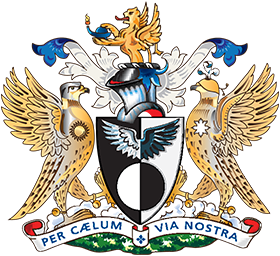- Home
- What we do
- News and Comment
- Scholarships
- International Air Pilots
- +44 (0) 20 7404 4032
- Member Login
The City & the Livery
The Origins
The Livery Companies probably had their origins in this country before 1066 and are similar to the fraternities and mysteries (from the Latin "misterium" meaning "professional skill") that flourished throughout Europe.
Not confined just to London, they flourished in towns and cities throughout Britain and it was the members of these Guilds who enacted the "Mystery Plays" of medieval history. Similar Guilds still exist in Germany, Switzerland, and France. The combining force of all these "guilds" being the the professional support of trades and crafts.
The earliest historical record in England is probably the Royal Charter granted to the Weavers' Company in 1155. The word "Guild" stems from the Saxon "gildan", meaning "to pay", subscription has always been the lot of a Guild member! These Guilds controlled the provision of services, manufacture and trading of goods within the City walls and helped to maintain stability, protecting employers, employees and customers at a time of rapid development of towns and cities.
The welfare of members, both materially and spiritually has always been a prime concern of the guilds. Almshouses were established, and the hall of a particular guild became a centre for arbitration in both trade and domestic dispute. Spiritually, each guild had a Patron Saint and a link with a specific church or monastery.
In medieval times, "livery" meant clothing, food and drink provided to officers and retainers of great households such as bishops, colleges and guilds. Eventually, the term came to represent clothing and badges, symbols of privilege, which distinguished a member of one guild from another, hence the guilds became known as "livery companies". On ceremonial occasions today in the city, the guild members on parade still wear their company livery.
Apprenticeship was the usual way to enter a trade or craft, apprentices would be indentured to serve their Master for 7 years and learn the trade. At the end of this period, they claimed their freedom. With freedom came the privilege to work for anyone they chose, or indeed, set up in trade on their own, it also brought freedom from the press-gangs and a right to vote in ward and parliamentary elections. A freeman had a voice in the running of the city. Freemen could enter a company as a right but were elevated to the Livery (full membership) of that company once they were set up in business on their own.
The companies today are organised much as they were then, with a regulating body which eventually evolved into a Court, composed of a Master (Prime Warden, Upper Warden or Upper Bailiff), elected for a fixed period, several wardens (from which pool the next Master would be elected) and a set of assistants (from which to elect the wardens in due course). Each company would have a Clerk to keep the records straight, and a beadle to assist the Clerk.
During the 18th and 19th centuries, the power of the livery companies diminished as the industrial revolution took hold. Since mid Victorian times, they found new ways to contribute to trades and industries by starting to give increasing support for technical and other education - which continues to this day. This revival was incredibly effective, resurrecting some long lapsed companies and into the 20th century, new trades sought to establish their own companies, the "Modern Companies" of which the Honourable Company of Air Pilots is one.
The City, Livery Companies and their order of precedence
From the earliest days, the City of London and Livery Companies have been inseparable. The election of the Sheriffs (and some other city appointments) is the responsiblity of the Livery Companies alone, whilst the election of the Lord Mayor is a shared responsibility between the Livery Companies and the Aldermen of the City. The link is formalised by the Livery Committee (established 1782), appointed by Common Hall and is made up of liverymen and clerks nominated by the Great 12 (the 12 founder companies), the Court of Aldermen and the Court of Common Council (Clerks are nominated by the three clerks' organisations).
In 1515, after many years of dispute between the 48 companies then in existence, the Lord Mayor of the time set an order of precedence. This has, in later years, been complicated by the merging and splitting of companies. However, for many years companies have been numbered in the order with which they gained Livery status.
The Honourable Company of Air Pilots is number 81.
The most recent company, number 111, is the Worshipful Company of Nurses.
Further information about the Livery Companies can be found at this link
The Honourable Company of Air Pilots
Air Pilots House, 52A Borough High Street, London SE1 1XN
Tel: +44 (0) 20 7404 4032
INCORPORATED BY ROYAL CHARTER
PATRON: HM THE KING
MASTER: JOHN DENYER BSc(Hons) FInstP FRAeS
CLERK: PAUL J TACON BA FCIS
© 2025 The Honourable Company of Air Pilots

